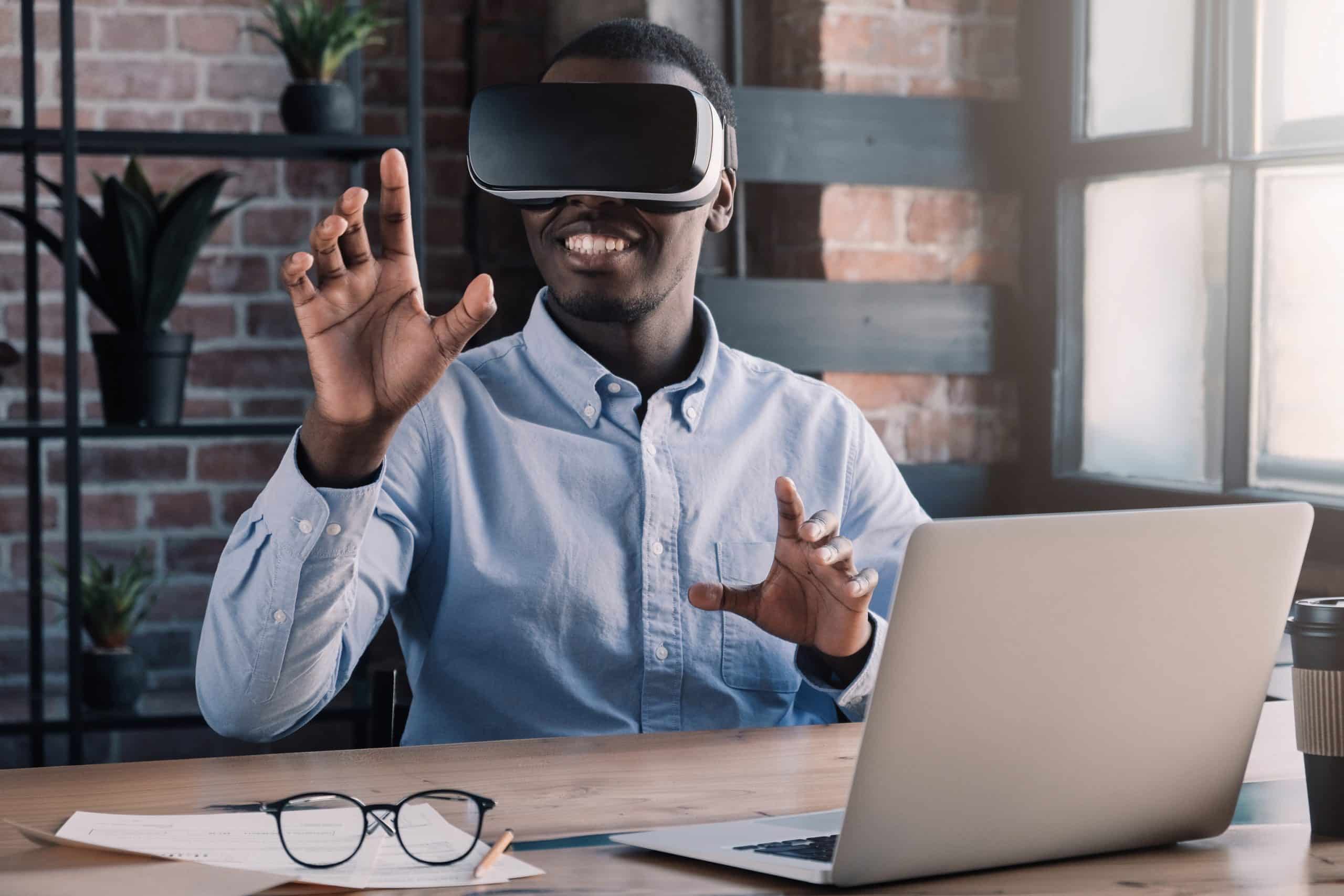In the fast-paced world of retail, staying ahead of the competition is key. With the rise of technology, retailers have been presented with new opportunities to enhance the shopping experience for their customers. One such technology is augmented reality (AR), which blends the real and digital worlds, offering an immersive experience that can significantly boost in-store promotions. But how exactly can UK retailers leverage this cutting-edge technology? Let’s delve into the exciting world of AR and explore its potential for revolutionising retail promotions.
The Intersection of Retail and Augmented Reality
Augmented reality, at its core, is an interactive experience where real-world objects are enhanced with digital information. In the realm of retail, this technology can be used to augment the shopping experience, creating an immersive environment that enhances customer engagement and boosts sales.
Also to see : What Are the Best Practices for Customer Data Protection in UK Fintech?
The use of AR in retail is not just a sci-fi fantasy, many big-name brands have already started integrating this technology into their sales and marketing strategies. For instance, furniture retailers are using AR to allow customers to virtually place products in their homes before making a purchase, while fashion brands offer virtual try-ons for clothes and accessories.
But augmented reality isn’t only for the big players. Small and medium-sized retailers can also leverage this technology to provide an enhanced shopping experience and drive customer engagement.
Topic to read : How to Implement Sustainable Packaging in the UK Cosmetics Industry?
Augmented Reality for Product Discovery and Evaluation
Retailers can employ AR to revolutionise the way customers discover and evaluate products. By integrating augmented reality into their in-store promotions, retailers can provide customers with a more interactive and engaging product exploration process.
Imagine a customer walking into a store and pointing their smartphone at a product. With AR, they can access detailed product information, view customer reviews, and even see how the product is used in real life. This interactive experience can not only make the shopping process more enjoyable but also help customers make more informed purchasing decisions.
For instance, a wine retailer could use AR to offer customers detailed information about the wine’s origin, flavour profiles, and pairing recommendations. This can enhance the customer’s shopping experience, while simultaneously promoting product sales.
Creating Immersive In-Store Experiences
The power of AR lies in its ability to create immersive experiences that transport customers into a whole new reality. Retailers can leverage this to transform their physical stores into exciting and interactive spaces.
Consider a toy store that uses AR to bring the toys to life, with children being able to see and interact with animated versions of the toys. Or a beauty retailer that uses AR to create a virtual makeup try-on station, where customers can experiment with different looks without even touching a makeup brush.
Such experiences are not only entertaining but also promote deeper engagement with the brand and its products. Customers are more likely to remember and return to a store that offers such unique and engaging experiences.
Boosting Online-to-Offline Sales
While online shopping has been on the rise, the reality is that many customers still prefer the tactile experience of shopping in physical stores. AR can be a powerful tool for bridging the gap between online and offline sales.
Retailers can use AR to enhance their online shopping platforms, allowing customers to virtually try on products or see how they would look in their homes. This can help reduce the uncertainty that often comes with online shopping, boosting customer confidence and increasing the likelihood of a purchase.
Once in the store, AR can be used to enhance the shopping experience, offering interactive product demonstrations and immersive brand experiences. This can help convert online interest into in-store purchases, boosting sales and customer loyalty.
Enhancing Marketing and Branding Efforts
Augmented reality can also be a powerful tool for enhancing a brand’s marketing and branding efforts. By integrating AR into their in-store promotions, retailers can create memorable experiences that leave a lasting impression on their customers.
AR can be used to bring marketing campaigns to life, allowing customers to interact with the brand in a whole new way. For example, a retailer could create an AR game that customers can play in-store, or use AR to create interactive product displays that catch the eye.
Furthermore, AR can help retailers tell their brand story in a more engaging and interactive way. This can help build a stronger emotional connection with customers, boosting brand loyalty and driving repeat business.
The retail landscape is always evolving, and it’s clear that AR has a key role to play in its future. By leveraging this technology, UK retailers can create more engaging and immersive in-store promotions, boosting customer engagement, sales, and brand loyalty. The future of retail is here, and it’s augmented.
Augmented Reality for In-Store Navigation and Assistance
In the retail world, augmented reality has the capability to revolutionise not just how customers shop, but also how they navigate and receive assistance in your store. By leveraging AR, retailers can create more interactive, personalised and efficient shopping experiences.
Imagine a customer entering a large department store. Rather than wandering aimlessly or seeking assistance from a staff member, they pull out their smartphone and launch the store’s AR app. By simply pointing their phone at different sections of the store, they are provided real-time directions, product locations, and even personalised product recommendations based on their shopping history or online wishlist.
Additionally, AR can also be used to provide virtual assistance. For instance, a customer struggling to assemble a product could use the retailer’s AR app to access a step-by-step, real-time guide that overlays instructions directly onto the product. Not only does this enhance the customer’s experience, but it also reduces the need for in-store staff intervention, allowing for a more efficient allocation of resources.
In a nutshell, augmented reality can transform the way customers navigate and receive assistance in stores, leading to improved customer satisfaction and a more efficient retail operation.
Augmented Reality and Personalised Shopping Experiences
Retailers have long sought ways to personalise the shopping experience for their customers, and augmented reality presents an exciting opportunity to do exactly that. AR can enable retailers to understand their customers’ needs better, provide personalised recommendations, and ultimately, increase sales conversions.
One way to achieve this is by integrating AR with data analytics and machine learning algorithms. As customers interact with products through an AR app, the software can collect data about their preferences and behavior. This data can then be analysed to provide real-time, personalised product recommendations, enhancing the shopping experience and increasing the likelihood of purchase.
For example, if a customer virtually tries on a dress and then explores matching shoes and accessories, the AR app could suggest other items that would complete the outfit. This not only boosts sales but also increases customer satisfaction by making the shopping process seamless and personalised.
To conclude, augmented reality presents a world of opportunities for retailers. It allows them to create immersive and personalised shopping experiences, boost customer engagement, convert online interest into in-store sales, and enhance their marketing efforts. For UK retailers looking to stay ahead in an increasingly competitive retail industry, incorporating AR into their strategy could be a game-changer.
With the rapid advancements in AR software development and the growing acceptance of this technology by consumers, the future of retail seems to be heading towards a blend of online and brick-and-mortar experiences, augmented by digital enhancements. This future is not far off; in fact, for retailers willing to embrace AR, it’s already here. The key will be to leverage AR in ways that add value for customers, creating unique and memorable shopping experiences that drive brand loyalty and repeat business.











